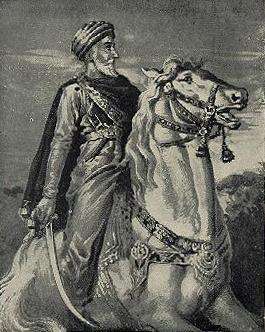1090
Year 1090 (MXC) was a common year starting on Tuesday (link will display the full calendar) of the Julian calendar.
| Millennium: | 2nd millennium |
|---|---|
| Centuries: | |
| Decades: | |
| Years: |
| 1090 by topic |
|---|
| Leaders |
|
| Birth and death categories |
| Births – Deaths |
| Establishments and disestablishments categories |
| Establishments – Disestablishments |
| Gregorian calendar | 1090 MXC |
| Ab urbe condita | 1843 |
| Armenian calendar | 539 ԹՎ ՇԼԹ |
| Assyrian calendar | 5840 |
| Balinese saka calendar | 1011–1012 |
| Bengali calendar | 497 |
| Berber calendar | 2040 |
| English Regnal year | 3 Will. 2 – 4 Will. 2 |
| Buddhist calendar | 1634 |
| Burmese calendar | 452 |
| Byzantine calendar | 6598–6599 |
| Chinese calendar | 己巳年 (Earth Snake) 3786 or 3726 — to — 庚午年 (Metal Horse) 3787 or 3727 |
| Coptic calendar | 806–807 |
| Discordian calendar | 2256 |
| Ethiopian calendar | 1082–1083 |
| Hebrew calendar | 4850–4851 |
| Hindu calendars | |
| - Vikram Samvat | 1146–1147 |
| - Shaka Samvat | 1011–1012 |
| - Kali Yuga | 4190–4191 |
| Holocene calendar | 11090 |
| Igbo calendar | 90–91 |
| Iranian calendar | 468–469 |
| Islamic calendar | 482–483 |
| Japanese calendar | Kanji 4 (寛治4年) |
| Javanese calendar | 994–995 |
| Julian calendar | 1090 MXC |
| Korean calendar | 3423 |
| Minguo calendar | 822 before ROC 民前822年 |
| Nanakshahi calendar | −378 |
| Seleucid era | 1401/1402 AG |
| Thai solar calendar | 1632–1633 |
| Tibetan calendar | 阴土蛇年 (female Earth-Snake) 1216 or 835 or 63 — to — 阳金马年 (male Iron-Horse) 1217 or 836 or 64 |
| Wikimedia Commons has media related to 1090. |

Hassan-i Sabbah (c. 1050–1124)
Events
By place
Europe
- A third Almoravid expedition is launched in Al-Andalus, designed to finally subdue the Taifa's Kingdoms. The cities of Córdoba, Seville, Granada, Málaga, Almería and Ronda fall to the troops of Sultan Yusuf ibn Tashfin.[1]
- King Stephen II of Croatia becomes involved in an open conflict between factions of Croatian nobles, who reassert their traditional rights in their own counties.
Seljuk Empire
- Hassan-i Sabbah founds the Nizari Ismaili state after taking control of the Alamut Castle and organising the military group called the Order of Assassins.[2]
Africa
- Béjaïa (or Bugia) becomes the capital of the Hammadid Dynasty in modern Algeria. It becomes an important port and centre of culture.
By topic
Arts and Culture
- Troubadours begin playing in western Aquitaine (Poitou and Saintonge) and Gascony (approximate date).
Science and Technology
- Qin Guan, Chinese poet of the Song Dynasty, writes the Can Shu (Book of Sericulture), which describes a silk-reeling machine that has the world's oldest known mechanical belt drive.
Births
- January 17 – Qin Hui, Chinese chancellor and traitor (d. 1155)
- Agnes I, German abbess of Quedlinburg (approximate date)
- Alaungsithu, Burmese king of the Pagan Dynasty (d. 1167)
- Arnold of Brescia, Italian canon regular (approximate date)
- Bernard of Clairvaux, French abbot and theologian (d. 1153)
- Chen Yuyi, Chinese politician of the Song Dynasty (d. 1138)
- Eliezer ben Nathan, German rabbi and liturgical poet (d. 1170)
- Eric II (the Memorable), king of Denmark (approximate date)
- Frederick II (the One-Eyed), German nobleman (d. 1147)
- Fujiwara no Akisuke, Japanese nobleman and poet (d. 1155)
- Fujiwara no Atsuyori (or Dōin), Japanese waka poet (d. 1179)
- Juliane de Fontevrault, French noblewoman (approximate date)
- Conrad I, German nobleman and rector of Burgundy (d. 1152)
- Niklot (or Nyklot), Obotrite prince and tribal chief (d. 1160)
- Robert FitzRoy, 1st Earl of Gloucester (approximate date)
- Sigurd I (the Crusader), king of Norway (approximate date)
- Theobald II (the Great), French nobleman (approximate date)
- Theobald of Bec, archbishop of Canterbury (approximate date)
- William de Mohun, 1st Earl of Somerset (approximate date)
Deaths
- March 22 – García II, king of Galicia and Portugal (b. 1042)
- April 16 – Sikelgaita, Lombard duchess of Apulia (b. 1040)
- May 12 – Liutold of Eppenstein, German nobleman
- May 18 – Berthold of Rheinfelden, German nobleman
- June 26 – Jaromír, Bohemian prince and bishop
- July 3 – Egbert II (or Ekbert), German nobleman
- August 13 – Constance of Normandy, duchess of Brittany
- Abd al-Jalil ibn Wahbun, Moorish poet and writer
- Adelaide of Rheinfelden, queen consort of Hungary
- Fayun Faxiu, Chinese Chan Buddhist monk (b. 1027)
- Fujiwara no Atsuie, Japanese nobleman (b. 1033)
- Guo Xi, Chinese landscape painter (approximate date)
- Hedwig of Formbach, German noblewoman
- Isaiah of Rostov, Kievan missionary and bishop
- Michael VII (Doukas), Byzantine emperor
- Osbern of Canterbury, English hagiographer
- Raynald I, French Benedictine abbot (b. 1059)
- Richard fitz Gilbert, Norman nobleman (b. 1035)
- William of Poitiers, French priest and writer
gollark: What limitations? It doesn't really obligate you as the author to do anything.
gollark: amd64 is just "x86 with 64-bit stuff" so everyone just used that.
gollark: IA-64 was basically totally redoing it.
gollark: I do basically just want to monitor CPU/RAM use for now, and not really much else.
gollark: Is there some sort of guide to setting up a nice dashboard thingy anywhere?
References
- Gilbert Meynier (2010). L'Algérie cœur du Maghreb classique. De l'ouverture islamo-arabe au repli (658-1518). Paris: La Découverte; p. 83.
- Steven Runciman (1952). A History of the Crusades. Vol II: The Kingdom of Jerusalem, pp. 96–97. ISBN 978-0-241-29876-3.
This article is issued from Wikipedia. The text is licensed under Creative Commons - Attribution - Sharealike. Additional terms may apply for the media files.